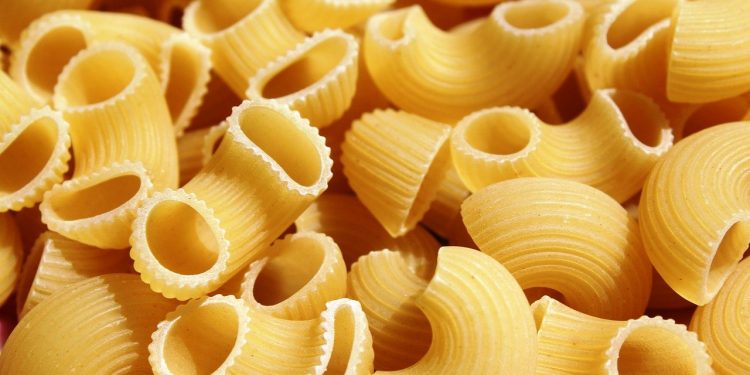Feeding your baby is one of the most profound acts of care you can provide, and when it comes to their first foods, making your own organic baby food at home is a wonderful way to ensure they receive pure, wholesome nutrition. Preparing organic baby food means you are in control of the ingredients, guaranteeing your little one gets the best possible start to their journey with solid foods. This essay will explore how to make organic baby food at home, the benefits it offers, and some simple recipes to get you started.
Why Make Organic Baby Food at Home?
When you prepare organic baby food at home, you are making a conscious decision about what goes into your baby’s body. Organic ingredients are grown without the use of synthetic pesticides, chemical fertilizers, or genetically modified organisms (GMOs), making them a healthier choice for your baby’s developing system. By opting for organic, you are minimizing your child’s exposure to harmful chemicals that could potentially affect their health.
Beyond health considerations, making your own baby food also provides an opportunity to offer your baby fresh flavors and a wide variety of nutrients. You can choose seasonal, local produce that is rich in vitamins and minerals, ensuring that your baby gets the nutrition they need while supporting sustainable farming practices. Additionally, homemade baby food is more cost-effective than purchasing organic jarred foods from the store, and it creates less waste, making it an environmentally friendly choice.
Getting Started with Organic Baby Food Preparation
Making your own baby food may sound intimidating, but it is surprisingly simple. With a few basic tools and some fresh ingredients, you can easily prepare a wide range of meals that your baby will love. Here’s what you need to get started:
- Blender or Food Processor: To achieve the smooth consistency needed for young babies, a blender or food processor is essential. It helps break down the food into a texture that’s easy for your baby to swallow.
- Steamer or Pot: Steaming is one of the best methods for cooking vegetables and fruits, as it helps retain the maximum amount of nutrients.
- Storage Containers: Invest in small, airtight containers or ice cube trays to store individual servings of baby food. This makes it easy to prepare larger batches and freeze portions for later use.
How to Make Organic Baby Food: Step-by-Step
- Choose Fresh, Organic Ingredients: Start by selecting fresh, organic produce. It’s important to pick ingredients that are in season, as these will be the most flavorful and nutrient-dense. For example, in the summer, you might use ripe peaches, while winter could be the perfect time for hearty sweet potatoes.
- Wash Thoroughly: Even organic produce needs to be thoroughly washed to remove dirt and any remaining residues. Use cold water to gently scrub fruits and vegetables before cooking.
- Cook Until Soft: Depending on the ingredient, you can steam, bake, or boil the produce until it’s tender enough to blend. Steaming is often the preferred method, as it preserves the nutrients better than boiling.
- Blend to Desired Consistency: Once the food is cooked, transfer it to a blender or food processor and purée it until smooth. For older babies who are ready for more texture, you can blend it less to create a chunkier consistency.
- Store Properly: If you’re making a larger batch, divide the food into portions using ice cube trays or small containers, and freeze them. Once frozen, transfer the portions to a labeled freezer bag for convenient storage. Thawed portions should be used within a day or two.
Simple Organic Baby Food Recipes
To help you get started, here are some simple organic baby food recipes that are perfect for babies just beginning their journey with solids:
1. Organic Carrot Purée
Carrots are rich in beta-carotene and have a naturally sweet flavor that babies love. To make organic carrot purée:
- Peel and chop 3-4 organic carrots into small pieces.
- Steam the carrots until they are tender (about 10-15 minutes).
- Transfer to a blender and purée until smooth, adding a little water or breast milk to achieve the desired consistency.
This bright orange purée is packed with vitamins and is easy on your baby’s digestive system.
2. Organic Apple and Pear Purée
Apples and pears are gentle on the stomach and provide a natural sweetness. This combination is ideal for introducing your baby to fruits:
- Peel, core, and chop 1 organic apple and 1 organic pear.
- Steam the fruit until it’s soft (about 8-10 minutes).
- Blend until smooth, adding water or breast milk as needed.
This purée can be served warm or chilled and is perfect for babies who are just starting with solids.
3. Organic Avocado and Banana Mash
Avocado is a fantastic source of healthy fats, while bananas provide potassium and natural sweetness. This no-cook recipe is great for busy parents:
- Scoop out the flesh of a ripe organic avocado.
- Mash half a ripe organic banana.
- Mix the two until well combined, adding breast milk or formula to thin the texture if needed.
This creamy mash is full of nutrients and takes just minutes to prepare.
4. Organic Sweet Potato Purée
Sweet potatoes are a favorite first food for many babies because of their sweet taste and creamy texture:
- Peel and chop 1 large organic sweet potato.
- Steam or bake the sweet potato until soft (about 20 minutes).
- Blend until smooth, adding water or breast milk to adjust consistency.
Sweet potato purée is rich in fiber, vitamins, and minerals that support your baby’s growth.
Tips for Successful Organic Baby Food Preparation
- Start Simple: When introducing new foods, start with single-ingredient purées to monitor for any potential allergies or sensitivities. Wait three to four days before introducing another new food.
- Adjust Consistency Based on Age: Younger babies will need very smooth purées, while older babies can handle thicker textures and small, soft chunks. Gradually increasing the texture helps babies learn to chew and adapt to different types of food.
- Introduce a Variety of Flavors: Introducing a wide variety of flavors early on helps expand your baby’s palate and may reduce the likelihood of picky eating later in life. Don’t be afraid to experiment with different vegetables, fruits, and combinations.
- Keep It Fresh: Homemade baby food doesn’t contain preservatives, so it’s important to store it properly. Freshly made baby food can be kept in the refrigerator for up to three days, while frozen portions should be used within one month.
- Follow Your Baby’s Cues: Every baby is unique, and some may take longer to accept new foods than others. Pay attention to your baby’s hunger and fullness cues, and don’t force-feed. Making mealtime a positive experience will encourage a healthy relationship with food.
The Joy of Making Organic Baby Food
Making organic baby food at home is a rewarding way to give your baby the best start in life. Not only does it allow you to provide fresh, nutrient-rich meals, but it also gives you the opportunity to bond with your baby as you introduce them to new flavors and textures. The process is simpler than many parents expect, and the peace of mind that comes with knowing exactly what your baby is eating is invaluable.
With just a few ingredients and a bit of time, you can create a wide variety of healthy, organic baby foods that are perfectly tailored to your baby’s needs. As you embark on this journey, remember that it’s not about perfection—it’s about providing love and nourishment in every bite. Enjoy the process, and take pride in knowing that you are laying the foundation for your baby’s lifelong health and well-being.












